Is acupressure the secret to getting better sleep naturally? Here's why, plus how to try it
Two experts weigh in on the benefits of acupressure for sleep
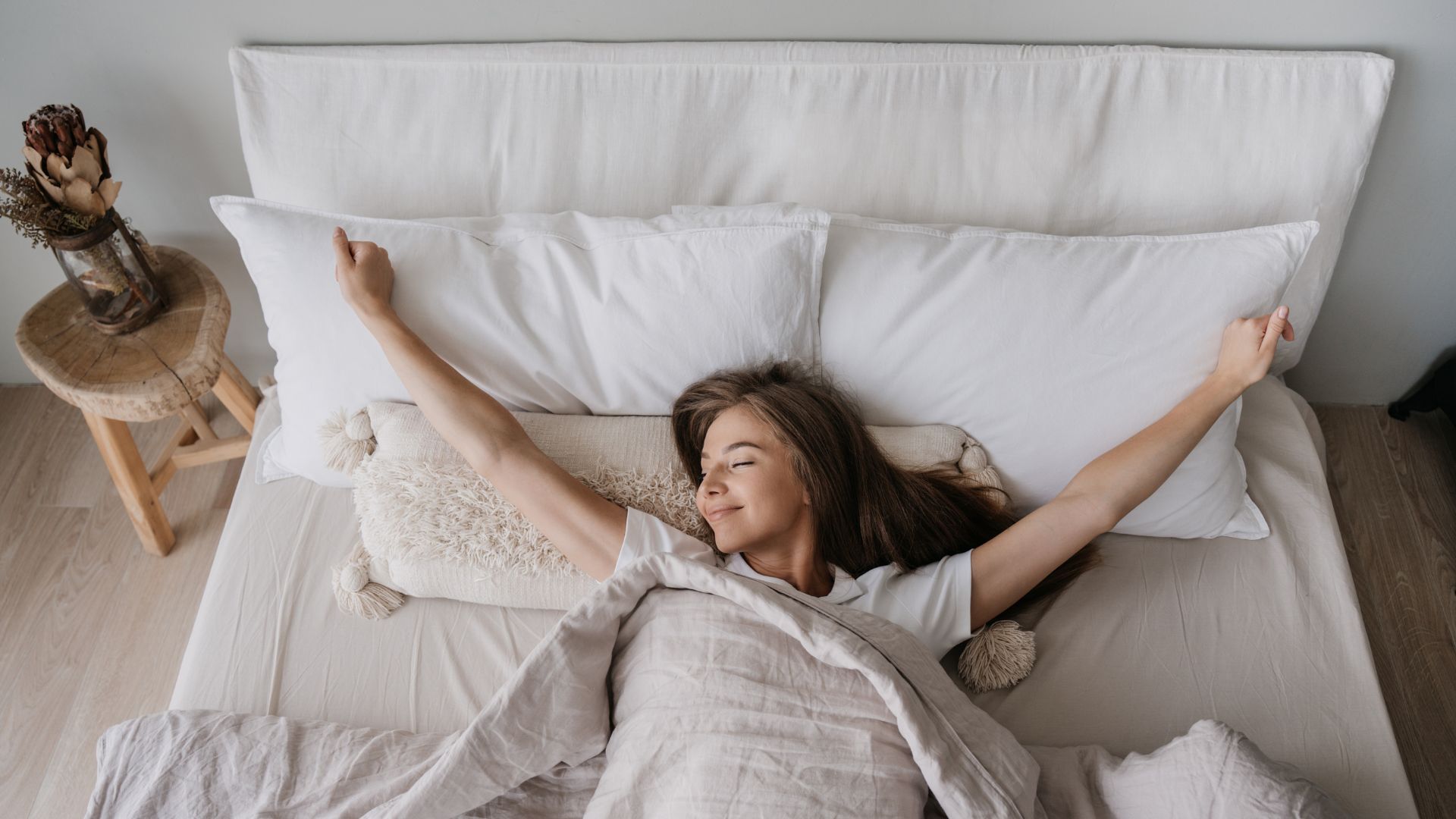
In a time where we're bombarded with social media trends for sleep like April Theory and the 'sleepy girl mocktail,' it can be easy to forget that there are some methods you can use to help with your slumber that have been around for thousands of years.
Like acupressure, a non-invasive, ancient traditional Chinese medicine practice that involves the use of pressure on the face and body at certain points, some of which are used to help with sleep.
Research has shown that acupressure can help with sleep, from reducing insomnia, to improving sleep quality in hospital patients and even contributing to better sleep in menopausal women.
Here, we'll explore this research and the potential benefits of acupressure for sleep, as well as speaking to experts in the field to find out about what acupressure is, and how you can even practice it in the comfort of your own home.
What is acupressure and how does it work?
"Acupressure is a non-invasive traditional Chinese medicine technique that uses pressure on the face and body at specific points known as acupoints," says registered acupuncturist Lily Lai, who has a PhD in Chinese Medicine in Primary Care and offers acupressure at her UK clinic.
"Pressure is applied in a variety of ways – most commonly finger pressure is used as well as tools," she adds.
Doctor of Oriental Medicine (DOM), Dr. Haley Parker, who is a licensed acupuncturist and the Director of Clinical Operations at VUIM Clinic (Virginia University of Integrative Medicine), explains that in acupressure, gentle sustained pressure is applied to "specific points along the body’s meridians — energy channels that correspond to organs and systems."
Get instant access to breaking news, the hottest reviews, great deals and helpful tips.
"It’s based on the same principles as acupuncture, but instead of using needles, you use fingers, palms, elbows, or tools to stimulate the points," Dr. Parker explains.
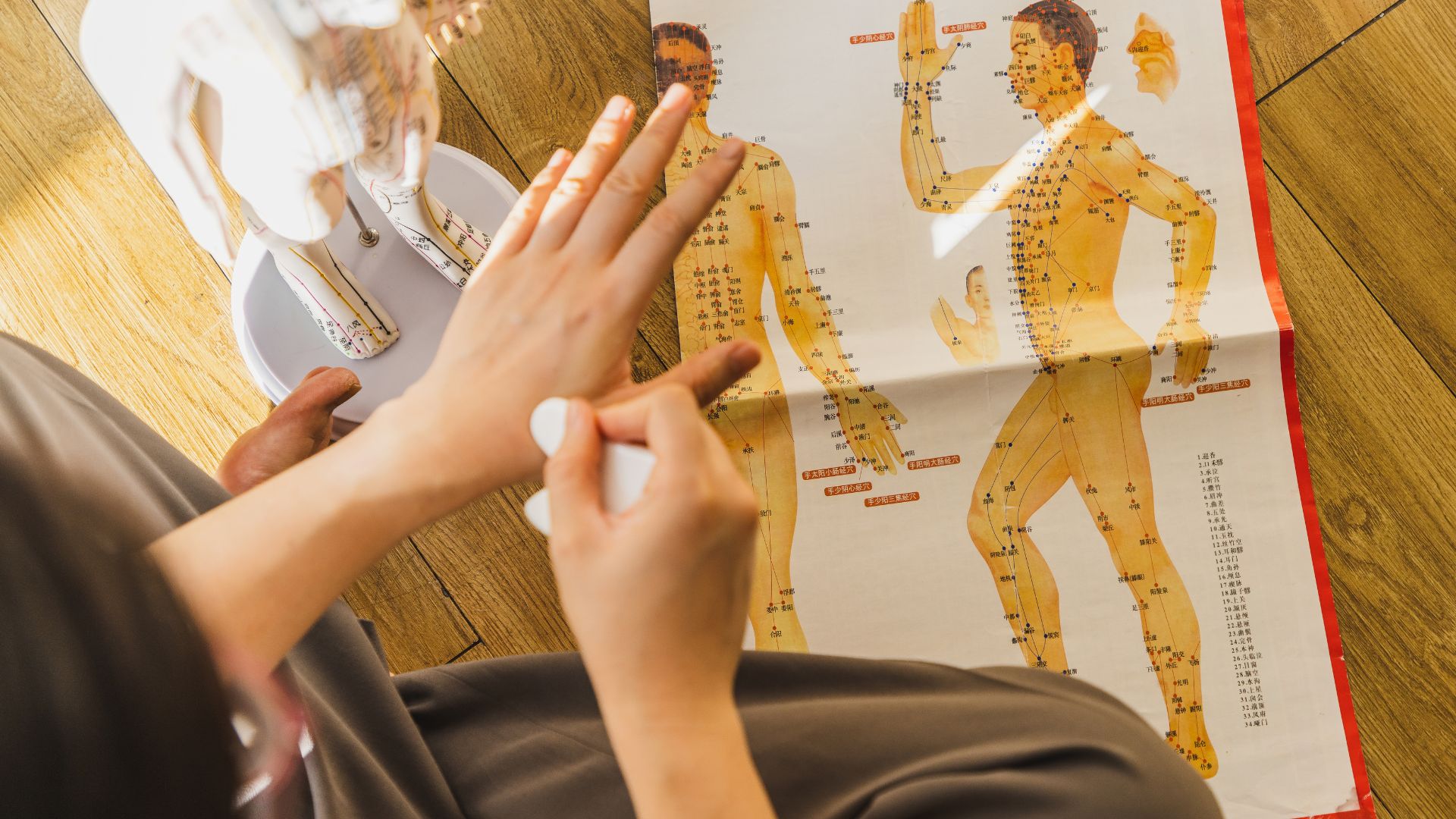
"The idea is to restore the smooth flow of Qi (vital energy) and blood through the body to promote healing, reduce tension, and support balance between the body and mind," she says.
"From a Western perspective, acupressure may stimulate the nervous system, influence endorphin release, reduce cortisol, and activate the parasympathetic 'rest and digest' response," the doctor continues.
According to The American Institute of Alternative Medicine, the practice is "based on the belief that applying firm pressure in specific acupoints stimulates the nervous system and brain to release endorphins and neurotransmitters to ease... pain."
Acupressure falls under what the National Health Service (NHS) in the UK describes as 'complimentary and alternative medicine' (CAM) and they do advise that "if you think you may have a health condition, first see your GP. Do not visit a CAM practitioner instead of seeing your GP."
Is there any science proving acupressure improves sleep?
As the NHS points out, it is important to review the evidence when considering a complimentary or alternative medicine.
When it comes to acupressure there is "a growing body of evidence supporting [its] effectiveness for sleep," says Dr. Parker.
As well as the research cited below, a review of studies into the effect of acupressure on hospital inpatients showed that it improved factors such as sleep quality, total sleep time, sleep efficiency and sleep onset latency compared to control groups.
Researchers concluded that it is an "effective intervention to improve sleep quality and sleep parameters in inpatients."
Among the studies she highlighted, Dr. Parker pointed to a review of studies and a specific study which both showed that acupressure improved sleep quality in older people.
How can acupressure benefit sleep?
1. Stimulate specific pressure points
As we've explored above, this traditional Chinese medicine practice involves applying pressure to certain points.
Dr. Parker says it can support sleep "by calming the nervous system, easing physical tension, and regulating the underlying organ systems that influence rest."
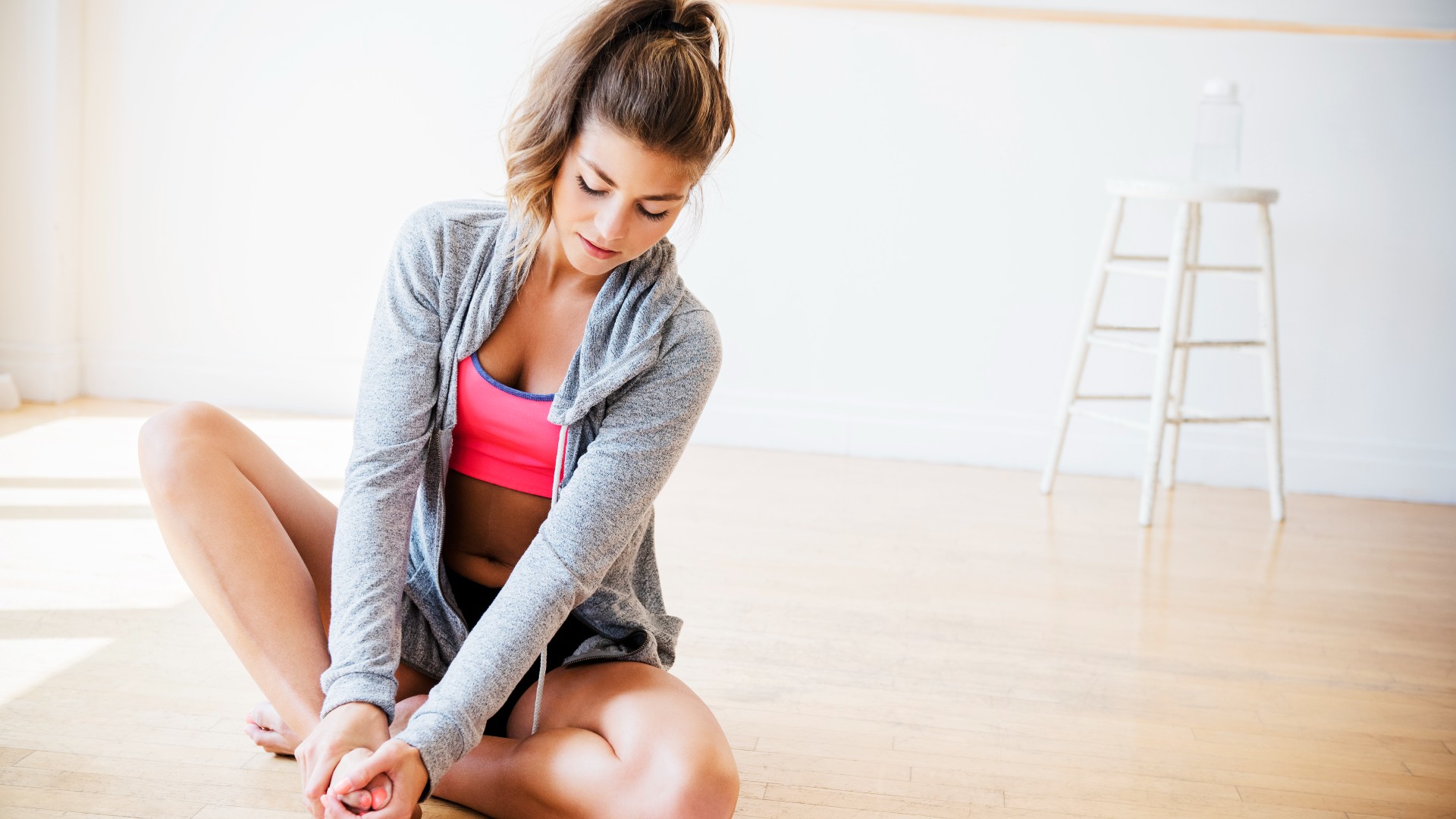
She notes that the best combination of acupressure points for sleep depends on what the individual is experiencing and that a personal point prescription would then be selected to "to support the patient and the present symptoms, like insomnia and restlessness."
However, she shares the following common points and how they work from a traditional Chinese medicine perspective:
- "Shenmen (HT7 – Heart 7): Located on the wrist crease, this point is often used for insomnia, anxiety and emotional restlessness. It calms the Shen (spirit), helping to settle racing thoughts and reduce overactivity of the Heart system, which in TCM can disturb sleep."
- "Yintang (“Third Eye”): Found between the eyebrows, this point is deeply calming and is known to relieve stress, quiet the mind and support melatonin production through relaxation of the pineal and hypothalamic areas."
- "Anmian (“Peaceful Sleep”): A lesser-known but effective point located behind the ear, Anmian is used specifically for sleep disturbances, helping to ground the nervous system and encourage deeper, more sustained rest."
- "Sanyinjiao (SP6 – Spleen 6): Located on the inner lower leg, this point supports hormonal regulation and helps harmonize the Spleen, Liver, and Kidney systems. These organs play key roles in emotional regulation and sleep according to TCM."
2. Reduces stress and anxiety
Anxiety can mean that worries, racing thoughts and restlessness make it particularly hard to fall asleep.
Lai says that one of the common causes of sleeplessness is stress and anxiety, and points to a systematic review and meta-analysis of research which showed acupressure can significantly reduce anxiety.
Acupressure can significantly reduce anxiety
"Studies suggest that acupressure and acupuncture work in similar ways by encouraging the body to release neurotransmitters such as endorphins and serotonin," says Dr. Parker.
"both of which are mood elevators and play a major role in sleep
regulation via the hypothalamic-pituitary-adrenal (HPA) axis," she explains.
"Acupressure may also be increasing parasympathetic nervous activity, the rest-and-digest part of our nervous system which takes the body away from being in the sympathetic nervous system state, the fight-or-flight response," Lai adds.
She says that these calming, anxiety-reducing effects of acupressure can help sleep by improving both sleep latency, and sleep duration.
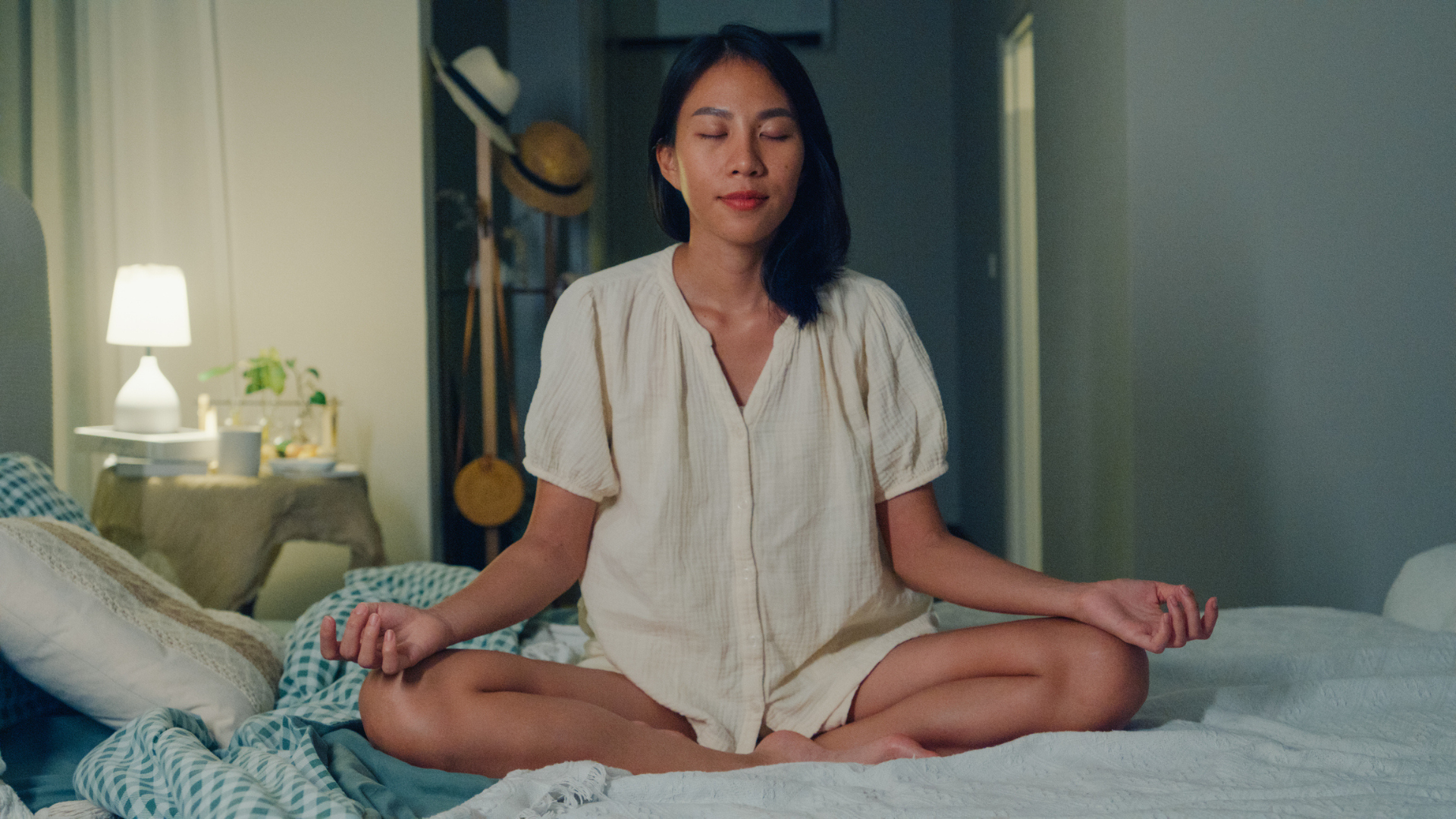
2. Helps to ease insomnia
Those who have experienced either short-term (several days or weeks) or chronic insomnia (lasting three months or more), know that it doesn't just interfere with your sleep.
It can also cause issues including irritability, fatigue and problems with focus the next day. But research shows that acupressure may be a tool you can include to combat it.
One study compared the effect of acupressure on those with insomnia, with 200 participants divided into a group who were taught self-administered acupressure, and a group who were given sleep hygiene education.
They found that those who had learned acupressure had improved Insomnia Severity Index scores after both four weeks and eight weeks, compared to the other group.
Auricular acupressure, which focuses on pressure points on the ear, has been shown in a number of studies to help with insomnia.

One review of studies looking at how effective auricular acupressure is as a treatment for insomnia concluded that, "the effects of auricular acupressure on insomnia are comparable to those of estazolam," which is a medication used short-term for treating insomnia.
And while Dr. Parker noted above that acupressure be used to help with sleep issues like insomnia, she also explains that, "lack of sleep/insomnia is often a symptom of an underlying imbalance."
"There are also lifestyle factors and habits that should be addressed to support a restful nights sleep (examples include limiting screen time before bed, limit caffeine after 3pm in the afternoon, eliminate noises and lights in the bedroom, try to go to bed at a regular time each night etc)," she explains.
3. Can help with hormonal changes affecting sleep
"Sleep problems can also be associated with hormonal changes and studies have demonstrated that acupressure can be effective for improving sleep in these patient populations," says Lai.
A huge number of women experiencing menopause have issues with their sleep. In fact, 2023 research noted that across the world, sleep and menopause effects the lives of about a third of women.
Lai suggests that acupressure may be one way to help tackle this, explaining that, "acupressure has shown in recent trials to significantly improve sleep quality in menopausal women."
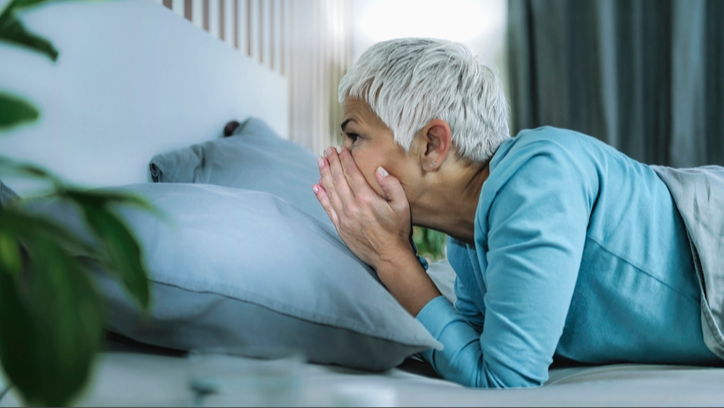
A trial published in the Iranian Journal of Medical Sciences, found that "acupressure alone can improve sleep quality at a rate of 22% in menopausal women by massage on the effective points," and concluded that it "can be used as a complementary treatment to relieve sleep disorders in menopausal women."
In addition, Lai says that "Studies have indicated that acupressure impacts hormone-related sleep problems through decreasing levels of follicle stimulating hormone (FSH) as well as through increasing levels of oestradiol."
"These in turn improve sleep quality related to hormonal conditions, but also in other symptoms such as hot flushes and fatigue," she explains.
How to try acupressure for sleep at home
If you're interested in exploring acupressure and want some simple options that you can try out from the ease of your home, Dr. Parker suggests the following.
- "Finger pressure massage: Apply gentle, circular pressure to key points like HT7 (wrist), Yintang (forehead), or SP6 (inner leg) for 1–2 minutes each, preferably in the evening before bed."
- "Acupressure mats: These mats use small spikes to stimulate multiple points along the back and shoulders. Lying on one for 10–20 minutes can help reduce muscular tension and promote parasympathetic nervous system activation—ideal for winding down."
- "Partner massage: Light massage focusing on the neck, shoulders, and feet can activate calming points. Adding lavender oil or calming music can enhance the effect."
- "Breathing with pressure: Combine acupressure with slow, deep breathing to amplify relaxation. Inhale deeply, press a calming point (like Yintang), and exhale slowly."
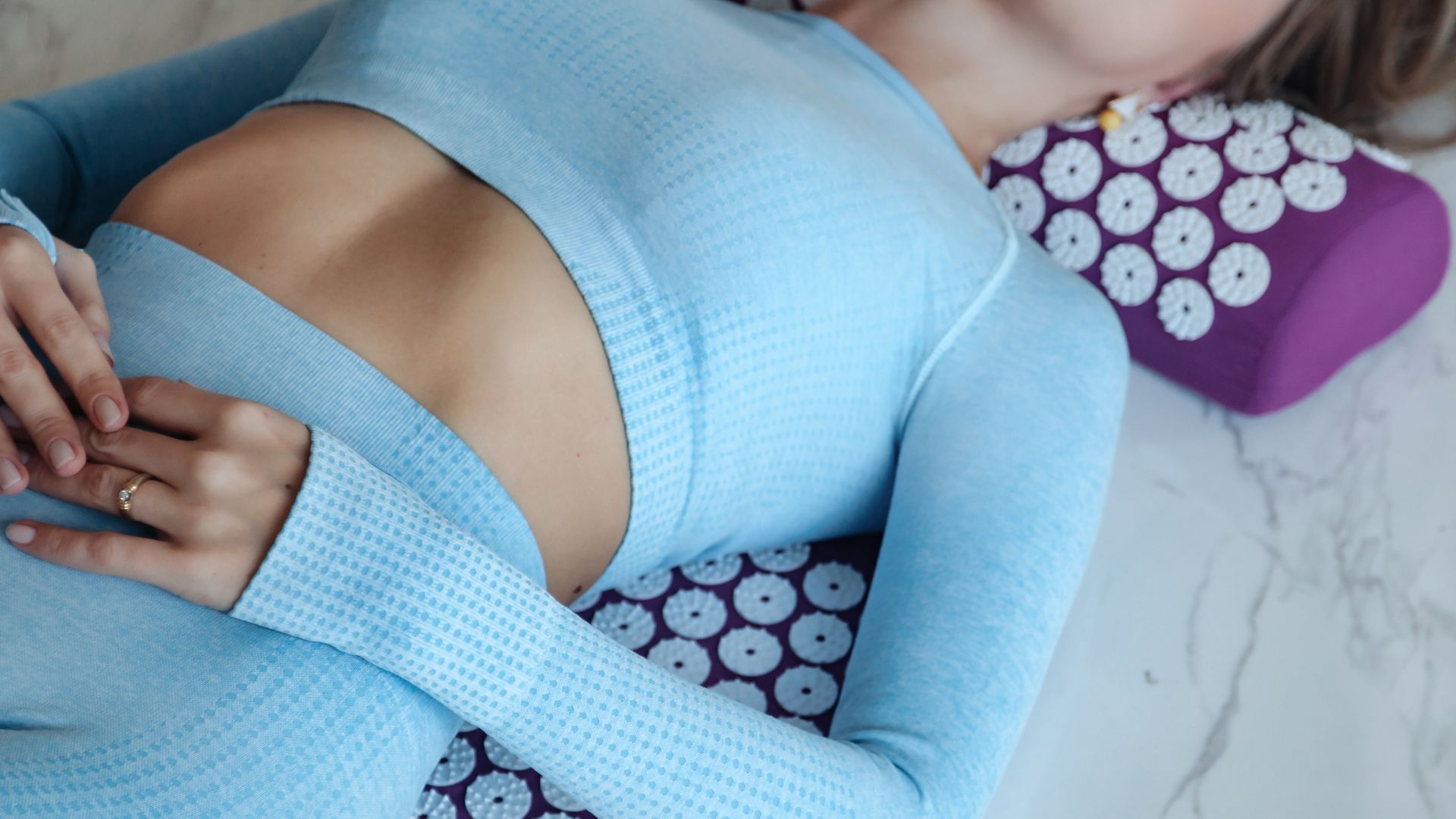
Acupressure mats like the Shakti mat and Pranamat have become popular options to try at home, and both promise to help improve your sleep after just 20 minutes use.
Pranamat even cites stats from Dr. Marek Dvořák's sleep tracker, which show that after using the Pranamat 20 minutes before sleep, his REM sleep increased by 2%, deep sleep increased by 7% and light sleep was reduced by 10%.
Lai also shares the one piece of advice given to every patient in her practice experiencing sleep issues:
"Utilise acupressure wristbands to stimulate Nei Guan (Pericardium 6). Whilst this acupoint is widely known for nausea and vomiting, it is also used frequently in traditional acupuncture for sleeplessness as well as for stress and anxiety," she says.
This pressure point is found between the two tendons ont he inner aspect of the forearm, three finger widths below the wrist crease.
Is acupressure suitable for everyone?
It's important to consult your doctor if you are experiencing pain or a medical condition, however, Lai and Dr. Parker agree that acupressure is, in general, very safe for most people.
"Basic self-acupressure can be safely carried out in specific circumstances such as with acupressure wristbands for nausea and vomiting," Lai says.
But she notes that, "for face, body or ear acupuncture and for more complex conditions, this is safest and most effective when carried out by a TCM practitioner who is registered with an appropriate acupuncture professional body."
"If you are actively under the care of a doctor or consultant for a medical condition, you should always seek their advice prior to using acupressure," she explains.
It's important that certain patient groups such as children, pregnant women and the elderly should check with their doctor before using acupressure for their health concerns.
Jenny Haward is a U.K. based freelance journalist and editor with more than 15 years of experience in digital and print media. Her work has appeared in PEOPLE, Newsweek, Huffpost, Stylist, ELLE, The Sydney Morning Herald and more. Jenny specializes in health, wellness and lifestyle, taking a particular interest in sleep.
You must confirm your public display name before commenting
Please logout and then login again, you will then be prompted to enter your display name.
 Club Benefits
Club Benefits





